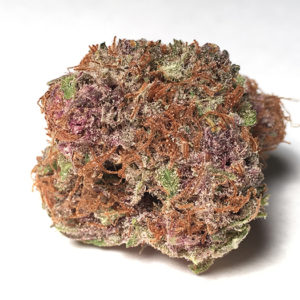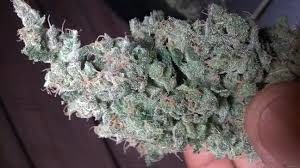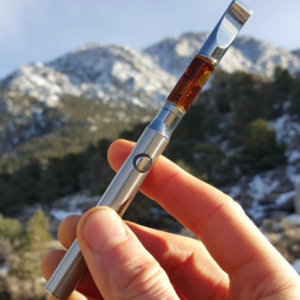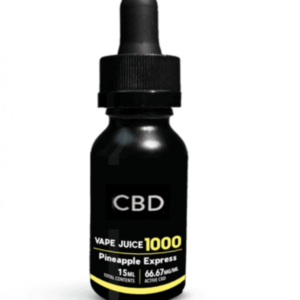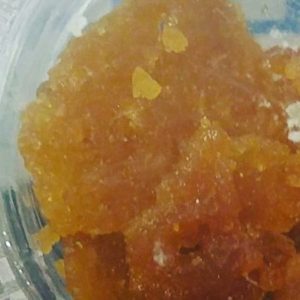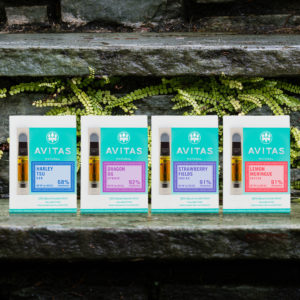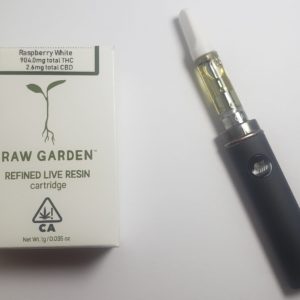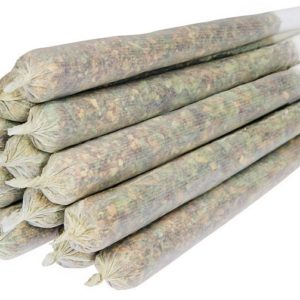The connection between marijuana and mental illness is complicated and controversial. There’s no doubt that puffing on a joint or two will lift your spirits in the short term, but can it really have an impact on your mental health? Everyone has a unique body chemistry. Some people will have very strong reactions to cannabis, and others will not. Cannabis And Mental Health: Does It Help?
Why Is Studying Cannabis and Mental Health So Difficult?
Marijuana has a very intricate relationship with mood. Mood is a complicated thing in general, and psychiatric illnesses have baffled scientists for years. Cannabinoid receptorsare abundant in areas of the brain that control mood, behavior, and cognitive thought. When you smoke a joint or consume weed in any way, you’re taking in compounds that alter the delicate balance in those areas. So there’s no doubt that marijuana has an immediate impact on your mood, which is why puffing on some weed after a stressful day feels so relaxing. But, research on just how compounds in marijuana impact these regions is far from complete. Cannabis And Mental Health: Does It Help?
Much of the scientific debate surrounds whether or not marijuana causes long-term changes in the brain and whether or not it can make some psychiatric conditions worse. The good news is that recent research has found that marijuana use doesn’t seem to be linked to the development of disorders like depression and anxiety. A study published this month surveyed around 35,000 people and checked back in three years later. They found that marijuana use did not correlate with the development of mood disorders, depression, and anxiety.
The bad news? A wealth of other research suggests that cannabis may still cause some people to have a bad time. It depends on your individual biochemistry and genetics.
What Is Mood?
If you want to truly understand how marijuana may impact your mental health, you have to learn a little bit about mood. In our everyday lives, we experience mood as our overall level of energy, fervor, and vitality. If we’re in a “good mood”, we tend to experience emotions like happiness and excitement. We’ll also have high levels of energy and feel motivated. In contrast, a “bad mood” is associated with emotions like anger or apathy. You might feel fatigued and have little motivation. A low mood can indicate depression and anxiety. Cannabis And Mental Health: Does It Help?
We experience mood as general, internal, sensations. But, ultimately, it’s chemicals in the brain are the culprits behind these feelings. Here are a couple of key compounds:
Serotonin
Serotonin is a neurotransmitter that makes you feel happy and gives you a sense of wellbeing. When you have low levels of serotonin, you feel fatigued and depressed. This is the chemical that antidepressant drugs target. Prescription medications like Prozac and Zoloft are known as Selective Serotonin Reuptake Inhibitors (SSRIs), and they work by creating surplusses of serotonin in your brain. Serotonin also helps modulate body temperature, plays a role in pain perception, and is linked to migraines. Cannabis And Mental Health: Does It Help?
Dopamine
This neurotransmitter is another pleasure-inducing chemical. It’s dopamine that helps determine our fight-or-flight response and leads to the creation of adrenaline in our bodies. Imbalances in dopamine levels are associated with major mental health issueslike schizophrenia, addiction, bipolar disorder, ADHD, and depression. Further, extreme rushes of dopamine can trigger psychotic episodes. Cannabis And Mental Health: Does It Help?
GABA
GABA is an amino acid that functions as a neurotransmitter. This molecule’s long form name is gamma-amino butyric acid, and it is responsible for quieting excessive neuron activity in the brain. GABA is a depressant, and it works to calm over-stimulation. People experiencing extreme agitation and anxiety often have low levels of this compound. Some forms of epilepsy are also caused by sudden drops of GABA.
When any of these chemicals are out of balance, you can experience some serious mental health consequences. Different types of imbalances in these compounds also imply different mental illnesses.
How Does Weed Affect These Neurotransmitters?
Athletes for care cannabis gameday
Cannabinoids, the compounds found in the cannabis plant, impact all of these neurotransmitters. In fact, this is why there is so much back and forth about whether or not marijuana can cause or worsen some mental health problems. Any time you take a substance that impacts your body’s production of these neurotransmitters, you’re cutting in and changing your brain chemistry. This is as true with weed as it is with alcohol, prescription drugs, and even poor diet. Of course, all of these items impact these neurotransmitters in very different ways.
Different molecules in marijuana play unique roles once they’re inside your body. This makes strain selection incredibly important if you’re concerned about mental health. While some cannabis products may work well for specific types of mental illnesses (ex: moderately high THC strains for people with PTSD), others may end up making some mental health issues worse.
Here’s the scoop on what does what:
THC
When you hear that marijuana is harmful to mental health, more often than not the argument is referring to psychoactive THC. In small doses, THC is a potent antidepressant. But, in large doses, THC has been shown to have the opposite effect.
Back in 2007, researchers from McGill University tested the antidepressant effects of synthetic THC in rats. They found that the cannabinoid stimulated serotonin-producing cells in the brain when given in small doses. When given larger doses, however, serotonin levels actually dropped. Study author Dr. Gabriella Gobbi tells Science Daily:
Low doses had a potent anti-depressant effect, but when we increased the dose, the serotonin in the rats’ brains actually dropped below the level of those in the control group. So we actually demonstrated a double effect: At low doses it increases serotonin, but at higher doses the effect is devastating, completely reversed.
THC also causes spikes of dopamine in your system. Dopamine is a stimulant. It eventually signals the release of other stimulating chemicals like norepinephrine and adrenaline. While these compounds cause a pleasure rush, they also prime your body for a fight-or-flight situation. This can cause fear or paranoia and can increase anxiety.
Now let’s say you have a disorder like schizophrenia, bipolar disorder, or are prone to psychosis. In schizophrenia and during psychosis or the manic phase of bipolar disorder, dopamine, and norepinephrine levels may already be elevated without the help of THC. This means that your body and mind are prone to overstimulation prior to adding in anything that increases dopamine. Consuming a cannabis product that is really high in THC may push dopamine levels over the edge just a little too much, exacerbating any mania, psychosis, or anxious moods. One study suggests that a “high dose” is anything above 15% THC.
Non-Psychoactive Cannabinoids:
A lot of recreational cannabis products are grown for maximum THC output. For folks that suffer from extreme anxiety and psychotic disorders, this is not the best news. But, one of the most interesting things about cannabis is that cannabinoids actually work in harmony with each other to balance out the overall effects of the herb.
This phenomenon is known as the “entourage effect”. For example, we all know that THC is a psychoactive substance. However, CBD, the second most abundant cannabinoid, is a powerful antipsychotic. So, on the one hand, the cannabis plant can increase psychoactivity in the brain. On the other, that same plant can also mitigate psychoactive stimulation. Cannabis And Mental Health: Does It Help?
CBD isn’t the only cannabinoid that can halt some of the psychoactivity of THC. Research published this year found that THCv (tetrahydrocannabivarin) lessened the psychoactive effects of THC in a small study. 10 healthy adult participants were given THCv coupled with THC or THC and a placebo. 9 out of 10 reported that the psychoactive effects of THC were reduced with THCv. Cannabis And Mental Health: Does It Help?
What’s the point in saying all of this? When it comes to marijuana and mental health, picking a balanced strain helps. Cannabis And Mental Health: Does It Help?
Something like an 80% THC dab might not be the best choice for someone who has a personal or family history of psychotic disorders. But, there is promising new research indicating that other cannabinoids may be potential treatments for a variety of mental illnesses. In fact, GW Pharmaceuticals, the manufacturer of Multiple Sclerosis drug Sativex, currently has open patent applications for the use of cannabinoids in conjunction with antipsychotics. They also have applied for patents to use cannabinoids as potential treatments for mood disorders. Cannabis And Mental Health: Does It Help?
CBD:
When it comes to protecting your mental health, CBD (cannabidiol) is a must-have component in cannabis strains. Not only is CBD a powerful antipsychotic on its own, but it also helps protect against psychosis that’s related to cannabis use. Further, like small doses of THC, this cannabinoid has potent antidepressant effects. Unlike THC, however, studies have not indicated that CBD loses efficacy as you increase the dose. CBD is also great for anxiety relief. Cannabis And Mental Health: Does It Help?
CBG:
Also known as cannabigerol, CBG has gained a lot of interest lately for its antidepressant and potential tranquilizing properties. Back in 2006, GW Pharmaceuticals even applied for a patent on the cannabinoid specifically for the development of drugs for mood disorders like Unipolar and Bipolar Depression. Pre-patent research suggested that CBG may be a strong antidepressant when coupled with CBD. Other research has shown that CBG may modulate the neurotransmitter GABA better than THC or CBD.
Specific Illnesses:
Here’s how cannabis may help (or hurt) specific mental health issues.
PTSD:
Post Traumatic Stress Disorder is quite a bit different from the psychotic disorders medical professionals are often so concerned about. Because PTSD is linked to a traumatic event, marijuana provides relief in a few unique ways. First, THC helps eliminate bad memories. THC takes the place of an endocannabinoid known as anandamide in our bodies. What’s unique about anandamide? It’s literally a molecule that helps us forget. As Michael Pollan explains in The Botany of Desire:

